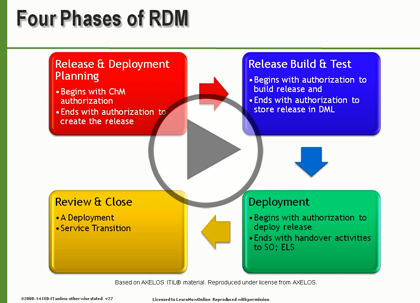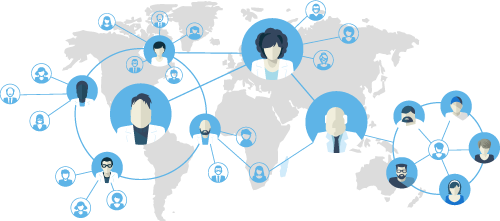Course description
This course will introduce the processes found in Service Transition, Service Operations, and Continual Service Improvement. We will briefly review the purpose for each lifecycle phase and then review the processes. We will build an understanding of the purpose, objectives and scope for each process. Within ITIL there are 4 processes that are considered to be highly important. For these processes we will also elaborate on additional process aspects such as basic concepts, process activities and process interfaces.
Prerequisites
This course is designed for IT service professionals looking to improve their IT processes and organization. They should have knowledge of what IT does and who are their customers. Please view ITIL Foundation: Strategy and Design Processes before starting this course.
Learning Paths
This course will help you prepare for the following certification and exam:
ITIL Foundation
ITIL: ITIL Foundation
Meet the expert
Kurt McWhirter is a recognized authority on using the ITIL framework and has more than 30 years of experience in IT strategic planning, operations management, and enterprise process design and implementation. He is certified as an ITIL Expert and ISO/IEC 20000 Consultant and is an accredited ITIL Trainer. He is the lead author of the book "The Definitive Guide to IT Service Metrics.”
Course outline
Lifecycle Processes
Service Transition (21:01)
- Introduction (00:32)
- Service Transition (01:38)
- Transition Planning & Support (05:13)
- ServiceAsset&ConfigurationMgmt (03:07)
- SACM - Key Concepts (04:18)
- ConfigurationManagementSystem (03:15)
- Definitive Media Library (02:37)
- Summary (00:17)
Change Management (24:07)
- Introduction (00:34)
- Change Management (04:55)
- ChM - Key Concepts (07:10)
- Change Models (02:40)
- CAB and ECAB (01:45)
- Activities (02:20)
- Seven Rs of Change Management (01:03)
- ChM - Interfaces (01:08)
- Change & Service Asset Mgmt (02:03)
- Summary (00:23)
R&D + Knowledge Management (25:17)
- Introduction (00:26)
- Release & Deployment Mgmt (06:21)
- RDM - Key Concepts (04:43)
- Four Phases of RDM (03:04)
- Four Phases... (01:42)
- Knowledge Management (02:33)
- DIKW Structure (02:41)
- Service Knowledge Mgmt System (01:40)
- SKMS (01:34)
- Summary (00:30)
Event, Incident, and Problem
Service Ops & Event Management (11:53)
- Introduction (00:34)
- Service Operation (01:54)
- Event Mangagement (02:27)
- Scope of Event Management (02:02)
- EM - Key Concepts (04:35)
- Summary (00:19)
Incident Management (25:16)
- Introduction (00:34)
- Incident Management (03:35)
- Incident Management - II (04:05)
- IM - Key Concepts (03:31)
- Incident Models (03:19)
- Activities (05:59)
- IM - Interfaces (03:50)
- Summary (00:30)
Request Fulfillment & Access (24:23)
- Introduction (00:40)
- Problem Management (03:32)
- Problem Management - II (03:37)
- PM - Key Concepts (02:03)
- Problem Models (01:26)
- PM Activities (03:56)
- PM Interfaces (02:17)
- Request Fulfillment (02:54)
- Access Management (03:25)
- Summary (00:30)
CSI and Service Functions
Continual Service Improvement (22:15)
- Introduction (00:21)
- Continual Service Improvement (01:03)
- 7-Step Improvement Process (02:24)
- The Steps (02:34)
- 7-Step Improvement Process (02:46)
- 5 Core Phases Integration (06:37)
- Process Integration (05:28)
- Summary (00:57)
Functions (35:00)
- Introduction (01:54)
- Functions (03:12)
- Service Desk (04:14)
- Service Desk Objectives (03:38)
- Service Desk Structures (02:19)
- Service Desk Structures - II (01:55)
- Service Desk Structures - III (02:36)
- Techincal Management (01:44)
- IT Operations Management (03:14)
- Application Management (02:33)
- Application Management - II (02:07)
- Exam Tips (04:24)
- Summary (01:05)



